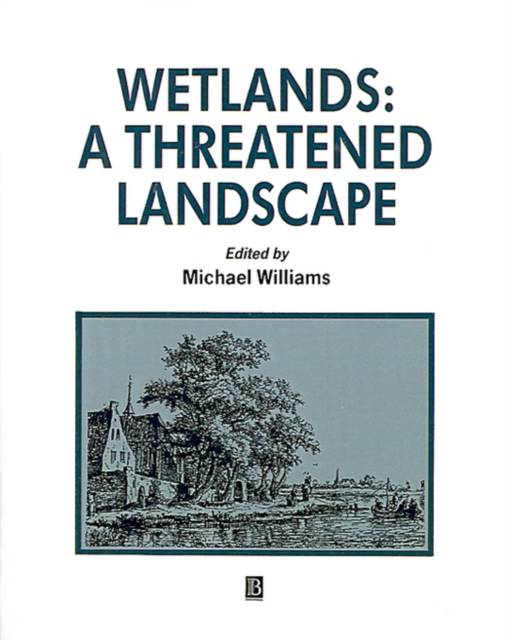
Door een staking bij bpost kan je online bestelling op dit moment iets langer onderweg zijn dan voorzien. Dringend iets nodig? Onze winkels ontvangen jou met open armen!
- Afhalen na 1 uur in een winkel met voorraad
- Gratis thuislevering in België vanaf € 30
- Ruim aanbod met 7 miljoen producten
Door een staking bij bpost kan je online bestelling op dit moment iets langer onderweg zijn dan voorzien. Dringend iets nodig? Onze winkels ontvangen jou met open armen!
- Afhalen na 1 uur in een winkel met voorraad
- Gratis thuislevering in België vanaf € 30
- Ruim aanbod met 7 miljoen producten
Zoeken
Wetlands
A Threatened Landscape
€ 111,95
+ 223 punten
Omschrijving
Wetlands occupy some six per cent of the Earth's land surface. They vary from fens and freshwater marshes to tropical mangroves and tundra swamps. They perform vital hydrological, chemical and biological roles and contain unique and diverse forms of wildlife and habitat. They are disappearing at an alarming rate and are threatened by both the direct and indirect effects of human activity. The purpose of this book of especially commissioned articles is threefold: (a) to explore the occurrence and composition of wetlands and their physical and biological dynamics; (b) to consider the impact upon them of agriculture, industry, urbanisation and recreation; and (c) to examine what steps can be taken to manage and to preserve their future survival.
Specificaties
Betrokkenen
- Uitgeverij:
Inhoud
- Aantal bladzijden:
- 432
- Taal:
- Engels
- Reeks:
Eigenschappen
- Productcode (EAN):
- 9780631191995
- Verschijningsdatum:
- 8/10/1993
- Uitvoering:
- Paperback
- Formaat:
- Trade paperback (VS)
- Afmetingen:
- 168 mm x 239 mm
- Gewicht:
- 811 g

Alleen bij Standaard Boekhandel
+ 223 punten op je klantenkaart van Standaard Boekhandel
Beoordelingen
We publiceren alleen reviews die voldoen aan de voorwaarden voor reviews. Bekijk onze voorwaarden voor reviews.










